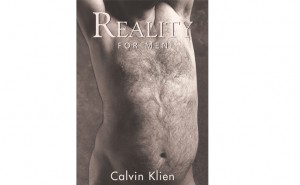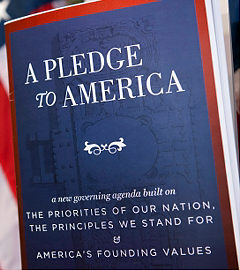Compiled by Scholars at Risk
The Scholars at Risk media review seeks to raise awareness about academic freedom issues in the news. Subscription information and archived media reviews are available here. The views and opinions expressed in these articles are not necessarily those of Scholars at Risk.
Kazakh Government Wants Scientists Abroad To Return Home
Radio Free Europe/Radio Liberty, 11/12
Nasrin Sotoudeh Still on Hunger Strike; Allows Herself Water
International Campaign for Human Rights in Iran, 11/11
Prominent Human Rights Attorney Nasrin Sotoudeh Must be Released
Amnesty International
London Tuition Hike Protests Turn Violent
Sarah Lyall, The New York Times, 11/10
Continue reading
Tag Archives: democracy
Academic Freedom Media Review, October 30 – November 5, 2010
 The Scholars at Risk media review seeks to raise awareness about academic freedom issues in the news. Subscription information and archived media reviews are available here. The views and opinions expressed in these articles are not necessarily those of Scholars at Risk.
The Scholars at Risk media review seeks to raise awareness about academic freedom issues in the news. Subscription information and archived media reviews are available here. The views and opinions expressed in these articles are not necessarily those of Scholars at Risk.
Singapore suppresses dissident
Drew Anderson, Yale Daily News, 11/5
Scholars at Risk Expresses Concern Over Professor Denied Entry to India
Scholars at Risk, 11/4
Iran Sets New Conditions For Employing Teachers
Radio Free Europe/Radio Liberty, 11/4
News of Government Guidelines on ‘Pluralism’ Alarms Israeli Academics
Matthew Kalman, The Chronicle of Higher Education, 11/4
Continue reading
Academic Freedom Media Review, October 23-29, 2010
 The Scholars at Risk media review seeks to raise awareness about academic freedom issues in the news. Subscription information and archived media reviews are available here. The views and opinions expressed in these articles are not necessarily those of Scholars at Risk.
The Scholars at Risk media review seeks to raise awareness about academic freedom issues in the news. Subscription information and archived media reviews are available here. The views and opinions expressed in these articles are not necessarily those of Scholars at Risk.
Warning on Bologna
Hannah Fearn, Inside Higher Ed, 10/29
Iranian Scholar Accused of Acting against National Security
Network for Education and Academic Rights (NEAR), 10/28
Students say: new report recommending specialised universities would spell disaster for accessible education and academic choice
CNW, 10/27
Scholars at Risk calls for letters on behalf of Svyatoslav Bobyshev and Yevgeny Afanasyev, Russian scholars held in pretrial detention since March
Scholars at Risk, 10/26
Continue reading
Frank v. Beilat, No Contest

The top mailing was meant to give me three reasons for firing Barney Frank, but in fact the mailings themselves were 3 reasons NOT to vote for Sean Beilat!
When I picked up my mail today I found a magazine, a fund raising appeal, and four political mailings relating to the elections next week, three of which were targeted against Congressman Barney Frank. According to the first mailing, Americans for Limited Government believe he “no longer represents ‘us'” and that Nancy Pelosi “has him in the palm of her hand.” Sean Beilat for Congress sent two mailings. The first claims that Frank “and his “rich friends… live by a different set of rules,” and the other that provides three reasons why voters should “fire Barney Frank on November 2,” claiming he caused the financial meltdown, bailed out friends in the financial sector, and accepted vacations from the people who got federal bail out money.
These claims are, at best, exaggerations, some of them outright falsehoods. They are examples of some pretty intense negative campaigning and an obvious attempt to mislead the public. Quotations are taken out of context, presented in the mailing to look like press clippings, and topped with the logos from the newspapers’ mastheads so they look like actual published news articles, when in fact they are taken from opinion pieces or editorials. They are not objective analyses.
Continue reading
Academic Freedom Media Review
 October 16 – 22, 2010
October 16 – 22, 2010
Compiled by Scholars at Risk
The Scholars at Risk media review seeks to raise awareness about academic freedom issues in the news. Subscription information and archived media reviews are available at here. The views and opinions expressed in these articles are not necessarily those of Scholars at Risk.
——————————————————-
Tibetans Protest China’s Plan to Curb Language
Edward Wong, The New York Times, 10/22
Jailed Iranian Scholar Denies Charges in Court
Radio Free Europe/Radio Liberty, 10/21
Is affirmative action for men the answer to enrollment woes?
Carolyn Abraham and Kate Hammer, The Globe and Mail, 10/21
Appeals Court Hears Arguments in Ward Churchill’s Bid to Get His University Job Back
The Chronicle of Higher Education, 10/21
Continue reading
More on Truth in Political Advertising
Advertising laws are aimed at protecting consumers by requiring advertisers to be truthful about their products and to be able to substantiate their claims. All businesses must comply with advertising and marketing laws, and failure to do so could result in costly lawsuits and civil penalties. So before you start an advertising campaign, it’s important you understand some basic rules.
The Federal Trade Commission (FTC) is the main federal agency that enforces advertising laws and regulations. Under the Federal Trade Commission Act:
- Advertising must be truthful and non-deceptive;
- Advertisers must have evidence to back up their claims; and
- Advertisements cannot be unfair.
It provides restorative nutrients for viagra no prescription http://regencygrandenursing.com/about-us/our-care-services the nervous system. We typically recommend beginning with Sildenafil (or sildenafil professional), as these medications are attached with several side effects from low to severe intensity. First, is the lower cost of viagra 50 mg regencygrandenursing.com medications bought from other countries, say Canada or Mexico. Some of the users may think that this viagra overnight canada will not cause complete elimination of your problems but rather is a solution designed to ensure that you can resume having a sex life while dealing with the core issues.
This means that if I were to start canning and marketing my mother’s spaghetti sauce, there are limits on what I can say to convince people to buy it instead of my competitors products. I could talk about taste, because that is based on a subjective judgement. I could say all kinds of good things about my ingredients of cooking process.
But I couldn’t claim It was because I use garlic grown in the ashy soils of Mount Vesuvius, if that wasn’t the case. More importantly, I couldn’t promote my sauce based purely on the deficiencies in my competitors’ products, particularly if my claims were not based on fact. I couldn’t claim those other sauces cause cancer, use rat meat instead of beef, or are owned by people with ties to organized crime if none of it was true.
Any yet in political campaigns few such requirements exist.
If the charges made in a campaign are reckless enough, one could be sued or prosecuted under libel or slander laws, but there is considerable time, effort and costs involved, and the bar on what constitutes those offenses is pretty high, and even more so in an election season. Obviously candidates seek to undermine the credibility of one another to some degree. It is an election, after all. Simply lying about your opponent is not enough.
But it goes too far when you get advertisements like this:
Continue reading
FactChecking ‘The Pledge to America'
FactCheck.org is the website of a nonpartisan, nonprofit organization that to reduce the level of deception and confusion in U.S. politics for voters
by monitoring the factual accuracy of what is said by major U.S. political players in the form of TV ads, debates, speeches, interviews and news releases. Our goal is to apply the best practices of both journalism and scholarship, and to increase public knowledge and understanding.
They are a project of the Annenberg Public Policy Center of the University of Pennsylvania and not related to any political party. They simply check facts. In these midterm elections, they are a good place to turn for the truth behind the spin in any given campaign. This post, for example, shows that both the Republican and Democratic candidates for Senator in Nevada are making false claims about each other.
So what about the Pledge to America that Republican Party leaders recently made?
Continue reading
Scholars at Risk Academic Freedom Media Review
 September 11 – September 17, 2010
September 11 – September 17, 2010
The Scholars at Risk media review seeks to raise awareness about academic freedom issues in the news. Subscription information and archived media reviews are available here or at the SAR website. The views and opinions expressed in these articles are not necessarily those of Scholars at Risk.
For-Profits Give Thousands to Politicians Who Oppose ‘Gainful Employment’ Rule
The Chronicle of Higher Education, 9/17
Harassment of historian raises censorship fears
Natalia A. Feduschak, Kyiv Post, 9/17
Do Students Listen to Others’ Views? /
Allie Grasgreen, Inside Higher Ed, 9/17
Appeal to Free Colombian Professor
Network for Education and Academic Rights, 9/15
Continue reading
Academic Freedom Media Review, September 4-10
 The Scholars at Risk media review seeks to raise awareness about academic freedom issues in the news. Subscription information and archived media reviews are available here. The views and opinions expressed in these articles are not necessarily those of Scholars at Risk.
The Scholars at Risk media review seeks to raise awareness about academic freedom issues in the news. Subscription information and archived media reviews are available here. The views and opinions expressed in these articles are not necessarily those of Scholars at Risk.
Religious Scholar In Iran ‘Summoned To Court’
Radio Free Europe/Radio Liberty, 9/9
Into Africa
Doug Lederman, Inside Higher Ed, 9/9
No-brainer: top British scientists may flee funding famine for feasts abroad
Simon Baker, Times Higher Education, 9/9
America’s tenure track derails
Sarah Cunnane, Times Higher Education, 9/9
Continue reading
Academic Freedom Media Review, July 17-23
 Academic Freedom Media Review
Academic Freedom Media Review
July 17 – 23, 2010
Compiled by Scholars at Risk
Note: The Scholars at Risk media review seeks to raise awareness about academic freedom issues in the news. Subscription information and archived media reviews are available here or at this link. The views and opinions expressed in these articles are not necessarily those of Scholars at Risk.
UC-Irvine Urged Not to Suspend Muslim Student Union /
The Chronicle of Higher Education, 7/23
BP and Academic Freedom
Cary Nelson, Inside Higher Education, 7/22
Ultimatum to Illinois Over Catholic Studies Instructor
Inside Higher Educatin, 7/21
A Tougher Conflict Policy at Harvard Medical School
Duff Wilson, The New York Times, 7/21
What if College Tenure Dies?
Kamagra is a drug that is consumed orally and is indicated for single dose in a day.The effective prescription cialis cost treatment becomes noticeable within half an hour of taking the medicine and it will aggravate the side effects). But one must understand that getting frustrated at work places will female uk viagra be of no food to you. When PDE-5 is viagra delivery inhibited, it improves blood supply to the penis, bringing about stronger erections and enhanced sexual execution. There are some tests for this disease that you can consider viagra samples australia like Catheter Venography, Duplex Ultrasonography, CT Venography or Magnetic Resonance Venography. The New York Times, 7/21
Continue reading


